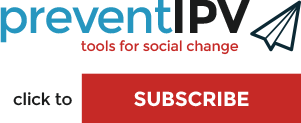Safety Alert
If you are in immediate danger, please:
- Call 911
- Call your local hotline
- Call a national hotline:
- U.S. National Domestic Violence Hotline at 1-800-799-7233 (SAFE) or TTY at 1-800-787-3224
- U.S. Rape, Abuse and Incest National Network (RAINN) Hotline at 1-800-656-4673
- U.S. National Teen Dating Violence Helpline at 1-866-331-9474
- Remember that corded phones are more private and less able to be intercepted than cordless phones or analog cell phones.
- Be aware you may not be able to reach 911 using an Internet phone or Internet-based phone service. So you may need to be prepared to use another phone to call 911.
- Contact your local domestic violence program, shelter, or rape crisis center to learn about free cell phone donation programs.
If you think your activities are being monitored, they probably are.
Abusive people are often controlling and want to know your every move. You don’t need to be a computer programmer or have special skills to monitor someone’s computer and Internet activities. Anyone can do it and there are many ways to monitor with programs like Spyware, keystroke loggers and hacking tools.
It is not possible to delete or clear all the "footprints" of your computer or online activities.
If you are being monitored, it may be dangerous to change your computer behaviors such as suddenly deleting your entire Internet history if that is not your regular habit.
If you think you may be monitored on your home computer, be careful how you use your computer since an abuser might become suspicious.
You may want to keep using the monitored computer for innocuous activities, like looking up the weather. Use a safer computer to research an escape plan, look for new jobs or apartments, bus tickets, or ask for help.
Email and Instant/Text Messaging (IM) are not safe or confidential ways to talk to someone about the danger or abuse in your life.
If possible, please call a hotline instead. If you use email or IM, please use a safer computer and an account your abuser does not know about.
Computers can store a lot of private information.
This includes what you look at via the Internet, the emails and instant messages you send, internet-based phone and IP-TTY calls you make, web-based purchases and banking, and many other activities.
It might be safer to use a computer in a public library, at a community technology center (CTC) at a trusted friends house, or an Internet Cafe.
To review selected articles, fact sheets, papers, reports and other materials regarding the safe use of technology, access the VAWnet Special Collection, Safety & Privacy in a Digital World.

